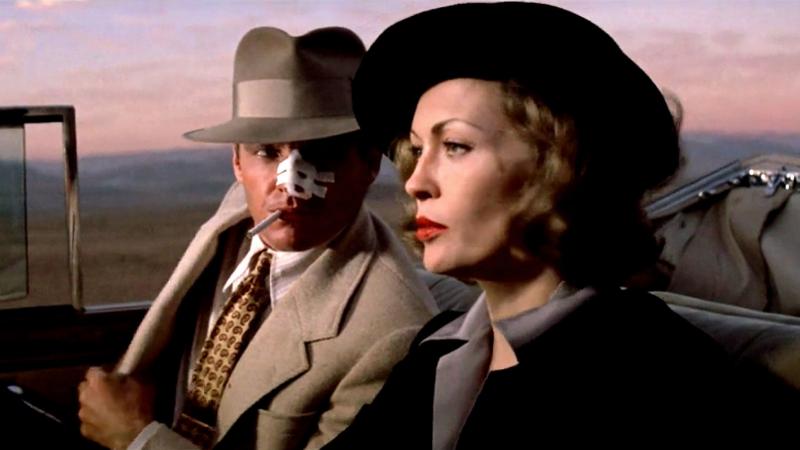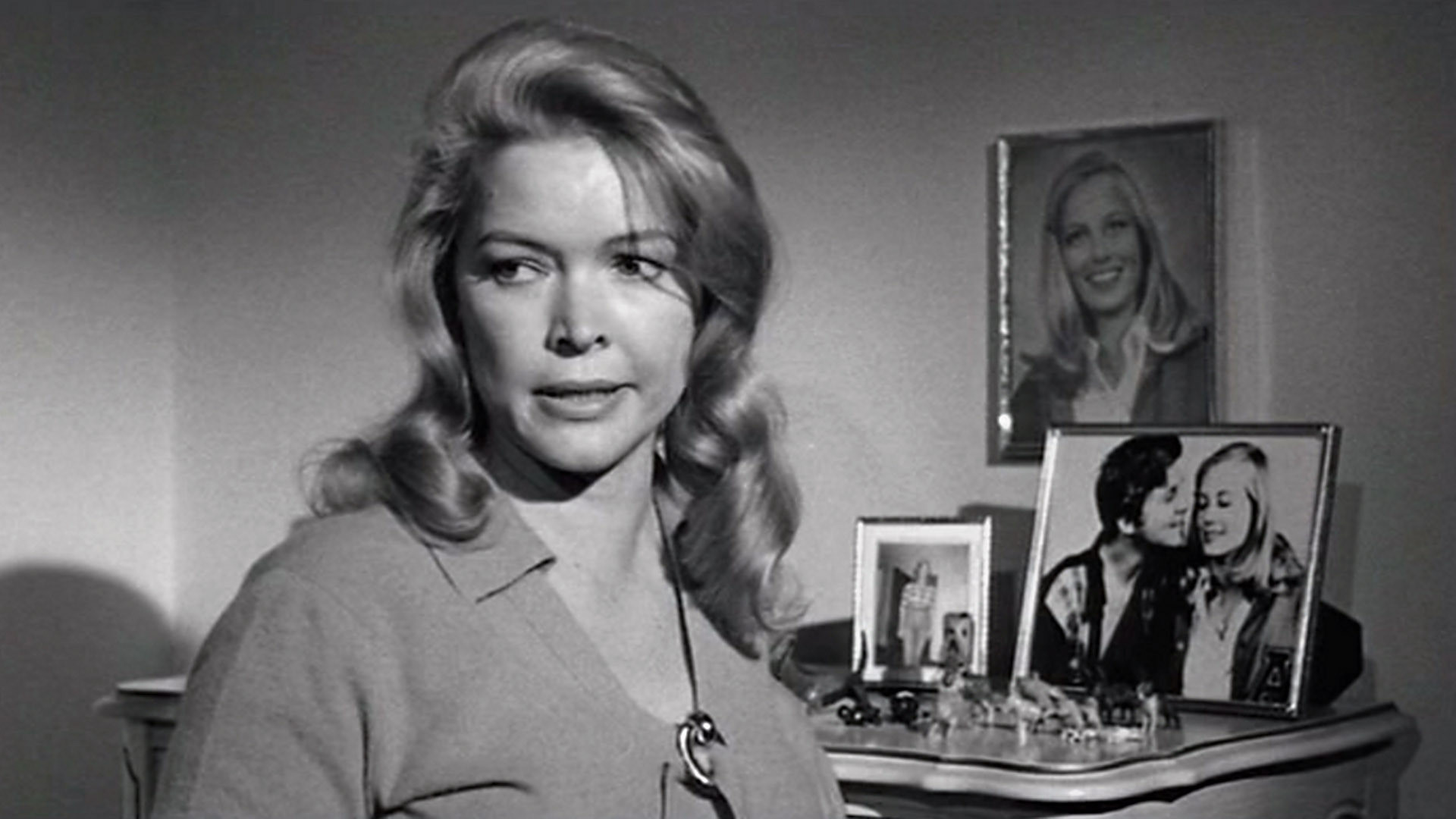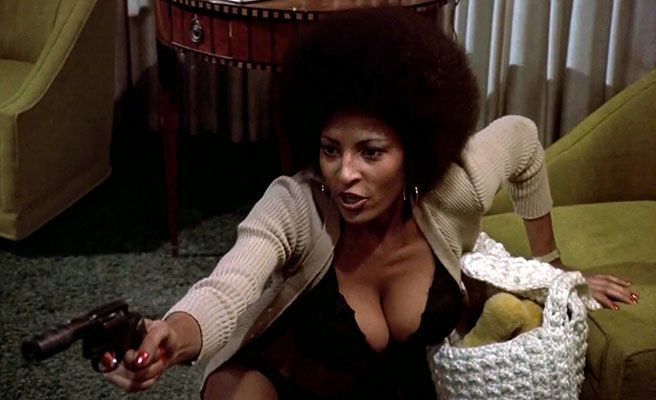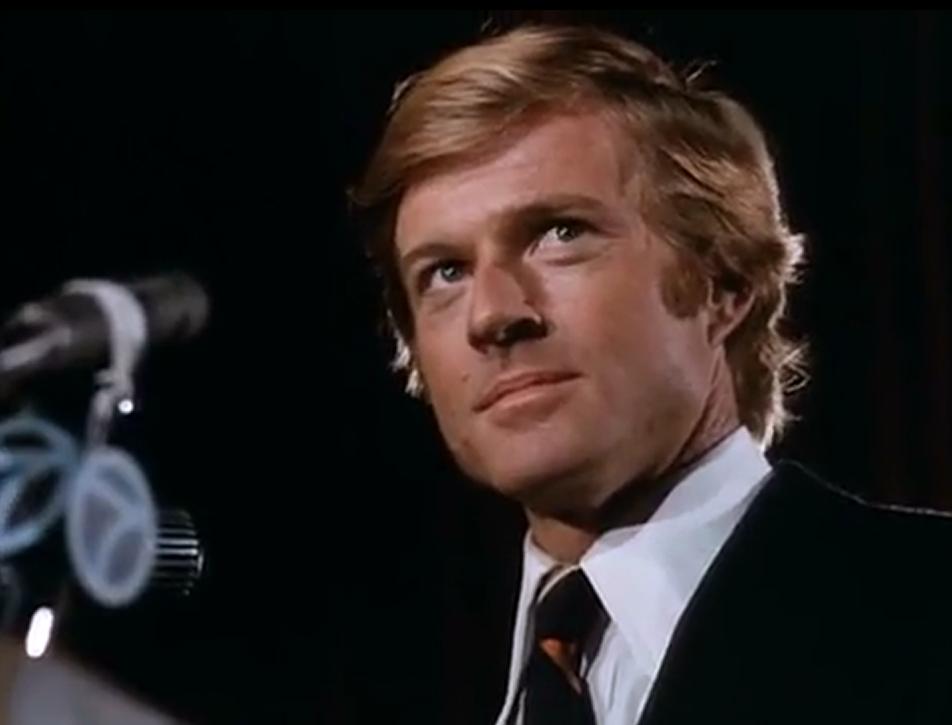The Movies: The Seventies review - a mirror on malaise | reviews, news & interviews
The Movies: The Seventies review - a mirror on malaise
The Movies: The Seventies review - a mirror on malaise
Sky's Hollywood documentary series reaches the Watergate decade

Sky’s 12-part documentary series The Movies is an unabashed celebration of American cinema. Barrages of clips make it an entertaining survey of Hollywood (and occasionally Off-Hollywood) through the years.
It’s also marred by its breathlessness. No sooner has a single movie or the work of an important director or actor or a significant trend been identified then it’s onto someone or something new. That’s not to say the series is without value beyond its wow factor. Young people newly amazed by the show's presentation of Hollywood’s historical riches will want to explore them further.
Produced by Tom Hanks and Gary Goetzman’s company Playtone and shown in six two-hour parts by the American news channel CNN in 2019, The Movies is a natural follow-on from the same outfit’s decade-by-decade political-cultural documentary series that began with The Sixties in 2014 and has continued through 2018's The 2000s and 1968: The Year That Changed America.
 Each loosely structured episode of The Movies intersperses its clusters of rapid-fire clips with sound bites taken from original interviews with stars, directors – including the late John Singleton – film scholars, and critics. Bits of contextualizing news footage are used too infrequently.
Each loosely structured episode of The Movies intersperses its clusters of rapid-fire clips with sound bites taken from original interviews with stars, directors – including the late John Singleton – film scholars, and critics. Bits of contextualizing news footage are used too infrequently.
There's no narrator so the series feels unmoored. Had it been made by the BBC, one can imagine an actor like Maxine Peake, Chiwetel Ejiofor, or Bill Nighy guiding it with the kind of shrewd, resonant voiceover narration with which James Mason illuminated Kevin Brownlow and David Gill’s masterful silent cinema documentary series Hollywood (1980). The Movies would have benefitted from the voice of Alfre Woodard, Meryl Streep, or David Strathairn, say, as well as an editor hired to slow the whole thing down.
Having romped through Hollywood’s Golden Age (or, at least, its first 60 years) in two episodes and The Sixties in two more, the series has arrived at the two parts of The Seventies. That decade is generally regarded as the most creatively fertile since the 1930s or 1940s. The coverage begins with clips from Peter Bogdanovich’s The Last Picture Show, a contemporaneous interview in which he arrogantly sidestepped Ford's influence on it, and his recollection of Orson Welles advising him to shoot it in black and white to get the same depth of field Welles’ cinematographer Gregg Toland achieved on Citizen Kane. More details like that would have been welcome. (Pictured above: Ellen Burstyn in The Last Picture Show.)
The Bogdanvich sequence should have presaged a thorough examination of the New Hollywood movement spearheaded by BBS Productions, the company that made The Last Picture Show and co-founder Bob Rafelson’s pivotal Jack Nicholson vehicles Five Easy Pieces and The King of Marvin Gardens. There’s a fleeting clip from the former film, but more attention is given to Nicholson's better-known performances in Chinatown and One Flew Over the Cuckoo’s Nest.
If Rafelson is neglected, along with then-up-and-comers like John Waters and David Cronenberg, directors like Hal Ashby, Bob Fosse, Gordon Parks, and Sidney Lumet get their due, albeit briefly. Comedy actor Bill Hader notes how Robert Altman’s “anti-movie, anti-story” approach to filmmaking helped give the viewer “a sense of really being there”. Scholar Sam Wasson, one of the series’ most persuasive contributors, pinpoints the capturing of “simultaneity and spontaneity” that enabled Altman to replicate reality and get at the truth.
 Among women filmmakers, The Seventies lauds writer-director-actor Elaine May but omits Barbars Loden, Joan Tewkesbury, Joan MIcklin Silver, and others. Loden, who wrote, directed and starred in Wanda, died before she could make a second film. Her absence from the series is unfortunate given Wanda’s growing stature as a key feminist film
Among women filmmakers, The Seventies lauds writer-director-actor Elaine May but omits Barbars Loden, Joan Tewkesbury, Joan MIcklin Silver, and others. Loden, who wrote, directed and starred in Wanda, died before she could make a second film. Her absence from the series is unfortunate given Wanda’s growing stature as a key feminist film
The series mercifully doesn’t partake in the #MeToo-era witch-hunt of Woody Allen, who, whatever one believes about him, matured into a great filmmaker in the 1970s. Billy Crystal nicely observes that many people waited for “two important things” at the time: “a [Muhammad] Ali fight and a Woody movie”. Hader and Wasson champion Allen’s Annie Hall and Manhattan respectively and film historian Kate Hearst stresses the vitality Diane Keaton brought to Allen's middle-class New York City. Molly Ringwald and Holly Hunter speak reverently of Gena Rowlands’s formidable acting in John Cassavetes's films.
The Seventies is good, in passing, on actors like Gene Hackman, Blaxploitation star Pam Grier (pictured above in Coffy), Al Pacino, John Belushi, Bruce Lee, One Flew Over the Cuckoo’s Nest’s Louise Fletcher, Blazing Saddles’ Cleavon Little, and Ellen Burstyn, who says she asked for Martin Scorsese to direct Alice Doesn’t Live Here Anymore after she saw Mean Streets.
In a spine-tingling passage, Robert De Niro recalls how the “You talkin’ to me?” scene in Taxi Driver grew out of improvisation – and Scorsese marvels at the memory: “I saw it happen, I saw him transform". Borat director Larry Charles describes how the “paranoid politics” of the Watergate era were manifested in The Conversation, The Parallax View, and Three Days of the Condor, and how Robert Redford and Warren Beatty’s “political consciousness found a way to make a coherent vehicle...of this dark undercurrent in American society". According to cultural critic Nelson George, the inability of Beatty's womanizing hairdresser to connect meaningfully with anyone in Shampoo made him a symbol of the Nixon-era spiritual malaise.
 Hanks raves about Redford’s looks, and listening to Redford’s typically astute remarks and seeing shots of him in All the President’s Men and especiallyThe Candidate (pictured right), one realizes how he offered an idealized surrogate of Robert Kennedy in the wake of his 1968 assassination. Clips from The Deerhunter, Apocalypse Now, and Coming Home illustrate how Hollywood dealt with the Vietnam War in the 1970s, but there’s no mention of how the depiction of real-life massacres of the Cheyenne in the Westerns Soldier Blue and Little Big Man invoked My Lai.
Hanks raves about Redford’s looks, and listening to Redford’s typically astute remarks and seeing shots of him in All the President’s Men and especiallyThe Candidate (pictured right), one realizes how he offered an idealized surrogate of Robert Kennedy in the wake of his 1968 assassination. Clips from The Deerhunter, Apocalypse Now, and Coming Home illustrate how Hollywood dealt with the Vietnam War in the 1970s, but there’s no mention of how the depiction of real-life massacres of the Cheyenne in the Westerns Soldier Blue and Little Big Man invoked My Lai.
The series understandably salutes Scorsese, Francis Ford Coppola, Steven Spielberg, and George Lucas, and highlights box-office phenomena like Star Wars, The Exorcist, Jaws, The Godfather, Saturday Night Fever, Grease, and Rocky. So there is no room for Claudia Weill’s Girlfriends, Michael Ritchie’s Smile, John Huston’s Fat City and Wise Blood, Arthur Penn’s Night Moves, Robert Aldrich’s Twilight’s Last Gleaming, or, unforgivably, David Lynch’s Eraserhead. Comprehensiveness was no doubt impossible, but how can you talk about 1970s cinema, really, if you don’t talk about Lynch’s big-haired dolt Henry Spencer (Jack Nance), the apple-cheeked Radiator Lady, and that mewling baby?
- The Movies: The Seventies, Part Two on Sky, 27 September
- More TV reviews on theartsdesk
The future of Arts Journalism
You can stop theartsdesk.com closing!
We urgently need financing to survive. Our fundraising drive has thus far raised £49,000 but we need to reach £100,000 or we will be forced to close. Please contribute here: https://gofund.me/c3f6033d
And if you can forward this information to anyone who might assist, we’d be grateful.

Subscribe to theartsdesk.com
Thank you for continuing to read our work on theartsdesk.com. For unlimited access to every article in its entirety, including our archive of more than 15,000 pieces, we're asking for £5 per month or £40 per year. We feel it's a very good deal, and hope you do too.
To take a subscription now simply click here.
And if you're looking for that extra gift for a friend or family member, why not treat them to a theartsdesk.com gift subscription?
more TV
 The Diplomat, Season 3, Netflix review - Ambassador Kate Wyler becomes America's Second Lady
Soapy transatlantic political drama keeps the Special Relationship alive
The Diplomat, Season 3, Netflix review - Ambassador Kate Wyler becomes America's Second Lady
Soapy transatlantic political drama keeps the Special Relationship alive
 The Perfect Neighbor, Netflix review - Florida found-footage documentary is a harrowing watch
Sundance winner chronicles a death that should have been prevented
The Perfect Neighbor, Netflix review - Florida found-footage documentary is a harrowing watch
Sundance winner chronicles a death that should have been prevented
 Murder Before Evensong, Acorn TV review - death comes to the picturesque village of Champton
The Rev Richard Coles's sleuthing cleric hits the screen
Murder Before Evensong, Acorn TV review - death comes to the picturesque village of Champton
The Rev Richard Coles's sleuthing cleric hits the screen
 Black Rabbit, Netflix review - grime and punishment in New York City
Jude Law and Jason Bateman tread the thin line between love and hate
Black Rabbit, Netflix review - grime and punishment in New York City
Jude Law and Jason Bateman tread the thin line between love and hate
 The Hack, ITV review - plodding anatomy of twin UK scandals
Jack Thorne's skill can't disguise the bagginess of his double-headed material
The Hack, ITV review - plodding anatomy of twin UK scandals
Jack Thorne's skill can't disguise the bagginess of his double-headed material
 Slow Horses, Series 5, Apple TV+ review - terror, trauma and impeccable comic timing
Jackson Lamb's band of MI5 misfits continues to fascinate and amuse
Slow Horses, Series 5, Apple TV+ review - terror, trauma and impeccable comic timing
Jackson Lamb's band of MI5 misfits continues to fascinate and amuse
 Coldwater, ITV1 review - horror and black comedy in the Highlands
Superb cast lights up David Ireland's cunning thriller
Coldwater, ITV1 review - horror and black comedy in the Highlands
Superb cast lights up David Ireland's cunning thriller
 Blu-ray: The Sweeney - Series One
Influential and entertaining 1970s police drama, handsomely restored
Blu-ray: The Sweeney - Series One
Influential and entertaining 1970s police drama, handsomely restored
 I Fought the Law, ITVX review - how an 800-year-old law was challenged and changed
Sheridan Smith's raw performance dominates ITV's new docudrama about injustice
I Fought the Law, ITVX review - how an 800-year-old law was challenged and changed
Sheridan Smith's raw performance dominates ITV's new docudrama about injustice
 The Paper, Sky Max review - a spinoff of the US Office worth waiting 20 years for
Perfectly judged recycling of the original's key elements, with a star turn at its heart
The Paper, Sky Max review - a spinoff of the US Office worth waiting 20 years for
Perfectly judged recycling of the original's key elements, with a star turn at its heart
 The Guest, BBC One review - be careful what you wish for
A terrific Eve Myles stars in addictive Welsh mystery
The Guest, BBC One review - be careful what you wish for
A terrific Eve Myles stars in addictive Welsh mystery
 theartsdesk Q&A: Suranne Jones on 'Hostage', power pants and politics
The star and producer talks about taking on the role of Prime Minister, wearing high heels and living in the public eye
theartsdesk Q&A: Suranne Jones on 'Hostage', power pants and politics
The star and producer talks about taking on the role of Prime Minister, wearing high heels and living in the public eye

Add comment